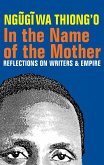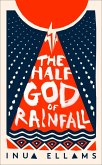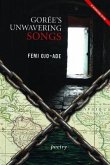The book, An Insight into the Horrors of Partition, Colonialism and Women's Issues, aims to explore, highlight and condemn various forms of oppression like the oppression of the downtrodden women in the patriarchal society, colonialism and mass trauma and exodus during the Partition of India. For the convenience of the readers, the book has been organized in three Chapters. Chapter I, "The Problem That Has No Name", attempts to explore the issue of patriarchy vis-à-vis women's oppression by the dominant male members of the society. An attempt has been made to allude to different scholars/philosophers/writers in order to establish the fact that women from the very outset have been greatly wronged, oppressed and marginalized. However, the problem is not left unanswered/unsolved. An attempt is made to provide a counterview by citing many authors/philosophers and by bringing to light the fact that though there have been forces at work to suppress/oppress the downtrodden women, there have also been forces to revolt against this unjust and absurd oppression. Mention has been made of various movements, like Feminist Movement, that strived to empower and uplift women. And this is followed by the conclusion which the reader shall come to know himself after having read the chapter. Chapter I is obviously followed by the second chapter of the book. Chapter II, "Post-colonialism: A Conflict Between the Orient and the Occident," is about colonialism: how the Europeans/British presented the entire process of colonization as a civilizing mission and how the natives were exploited and oppressed socially, politically and economically; how attempts were also made to instill a deep repugnance in the minds of the downtrodden natives for their own culture. The chapter aims to bring to light a conflict between the Orient and the Occident. The chapter also highlights the postcolonial posture/strain of different authors who tried to "write back" in order to reinvent and restore their lost identity that had greatly been distorted by the colonizers, who portrayed the colonized as barbaric, sinister, undeveloped, immature and uncivilized. Chapter III, "Partition of India: A Tale of Mass Trauma, Exodus and Women's Exploitation," is about the partition of India. The chapter aims to provide a deep insight into various hardships that the downtrodden people faced during the communal violence in the course of the partition. However, special attention has been paid to highlight and condemn the miseries and sufferings of women, who, in the course of Partition violence, had not only been wronged by the members of the rival community but also by their own family/community members.
Dieser Download kann aus rechtlichen Gründen nur mit Rechnungsadresse in A, D ausgeliefert werden.









